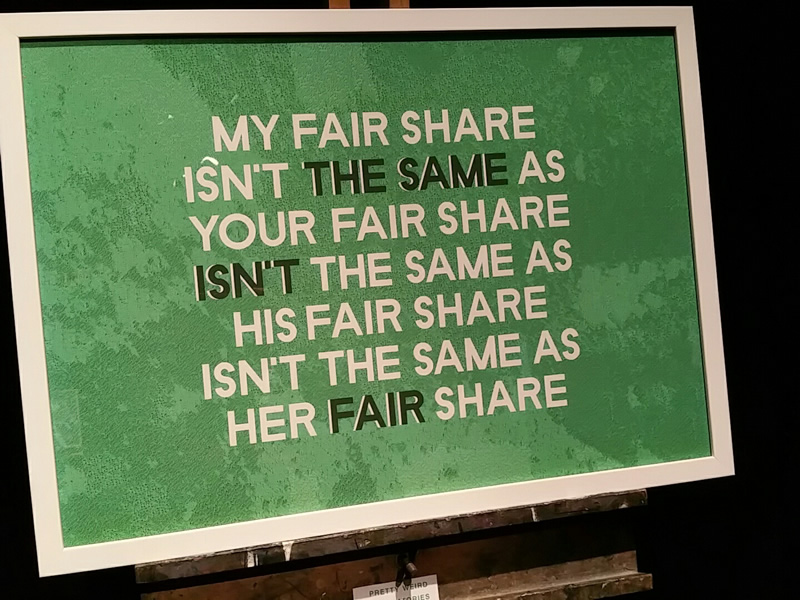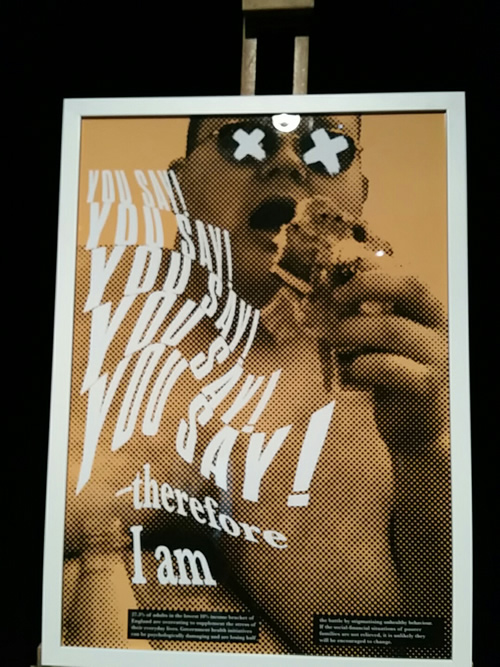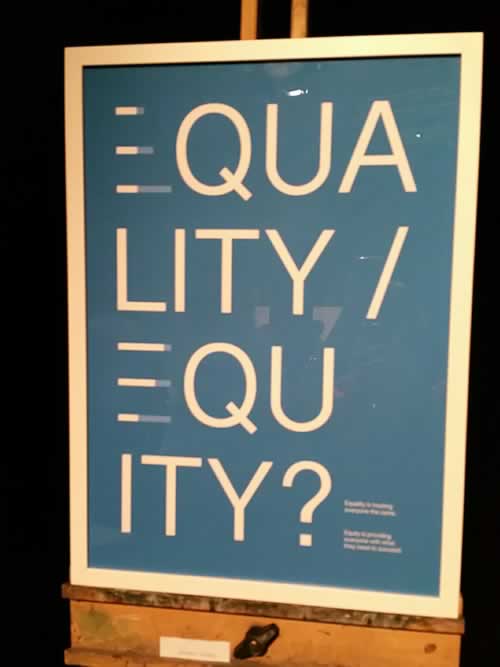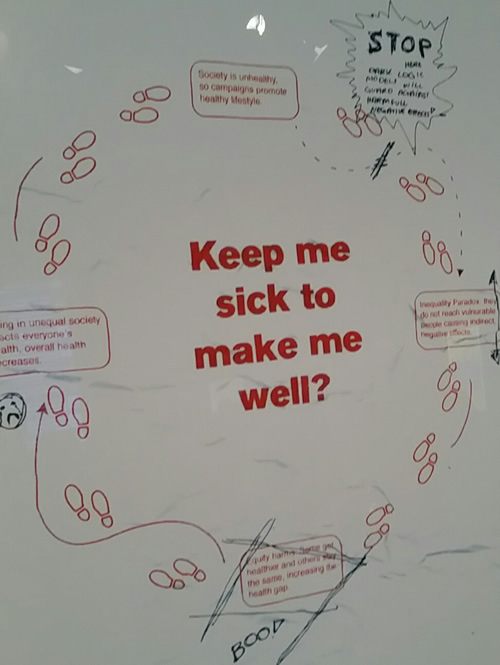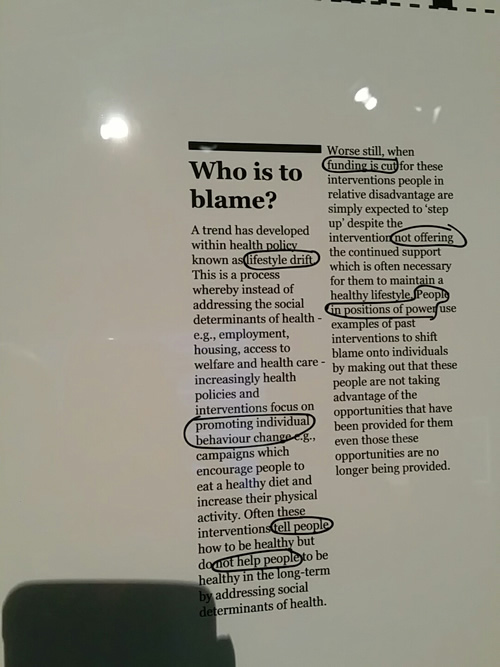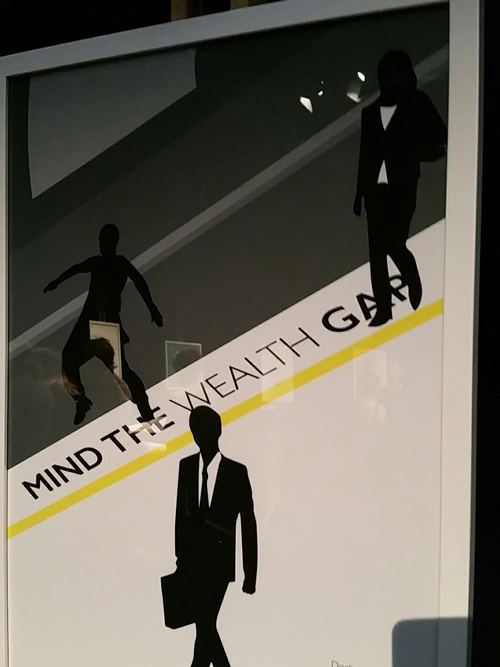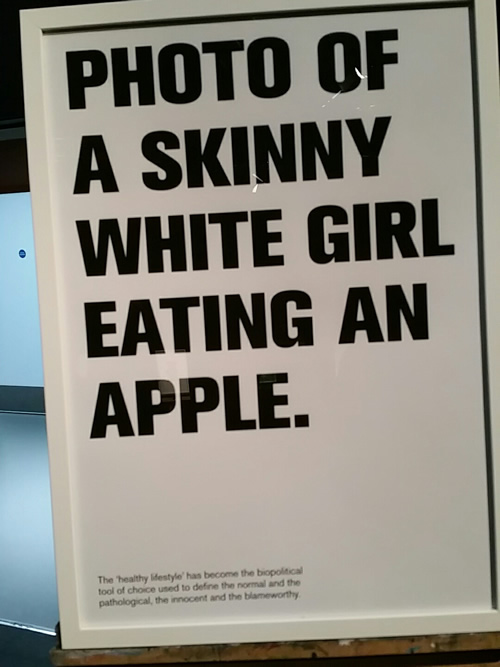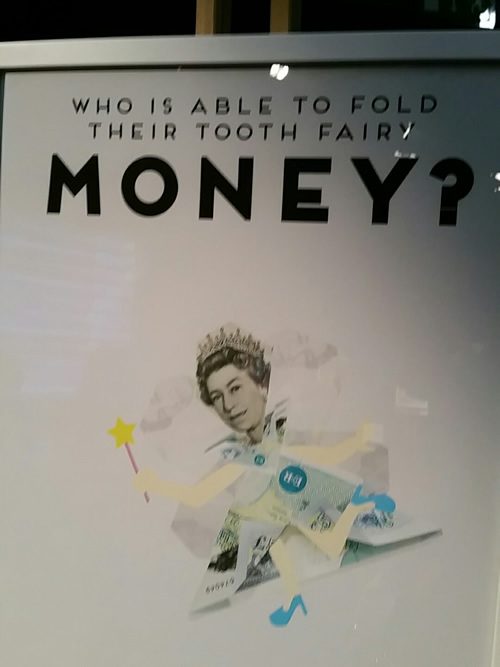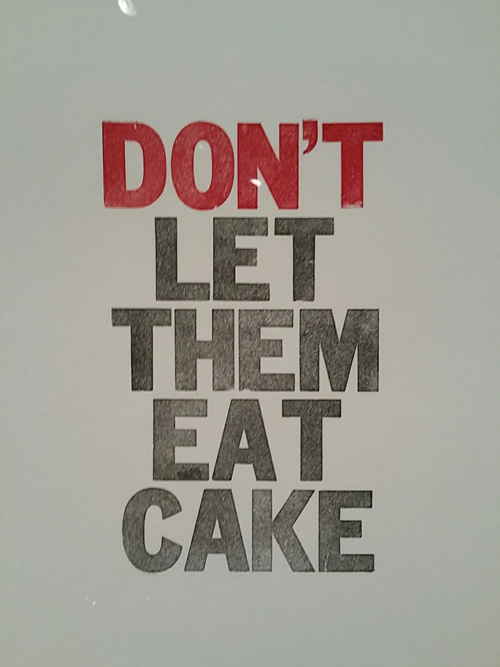Equity is the Answer exhibition explodes health inequality myths
24 November 2016
More than 100 people gathered to view an exhibition that explodes myths around health inequality, called Equity is the Answer. The exhibition of 20 artworks explores Oli Williams’s thesis, bringing its messages and themes to life for a non-academic audience.
The exhibition focused on health equity as a means for reducing inequalities. The burden of managing health is often depicted as an individual’s responsibility, whereas in reality societal factors limit what many people can do for themselves. Rather than treating everyone the same, policymakers should recognise that making healthy choices just isn’t a possibility for many people and that current health campaigns are failing these more vulnerable people. The media are also complicit in this.
It took place at the Edge at University of Bath, on Friday 18 November.
Oli Williams, who is the Dan Hill Fellowship in Health Equity Research Associate at NIHR CLAHRC West, has been working on the exhibition for two years. He said:
“It was incredible to see such a crowd of people looking at these images. These 20 artworks have taken two years to make. They explore the themes of my 90,000 word thesis, trying to make it accessible to people who don’t have an academic background.
“We need to reduce inequalities and the way you do that is to promote health equity. We are born into inequality and so we have to treat people differently to reduce that inequality. People don’t want ot keep promoting the idea that poorer people just need to pull their socks up and get better. We need to offer more support, not continue to stigmatise them.”
The exhibition also saw the launch of the #awl4change hashtag. The UK Government’s main health promotion campaign ‘Change4Life’ promotes the message of:
Eat well, Move more, Live longer
While being physically active and eating a well-balanced diet high in fruit and vegetables have been shown to have a positive health effect, this slogan is a gross simplification of a complex social issue. There is an inverse social gradient in physical activity levels and fruit and vegetable consumption. Put simply, people with a higher socioeconomic status tend to have lives which allow them to be more physically active and to eat healthier diets than people with a lower socioeconomic status. For many reasons, vast national inequalities make it more difficult for some people than it is for others to live a healthy lifestyle.
The problem with the simplistic Change4Life slogan is that it individualises a social issue by emphasising choice and personal responsibility. The Change4Life campaign implies that those who do not ‘choose’ to eat well and move more are irresponsible and lazy. However, research shows that low socioeconomic status inhibits a person’s capacity to ‘choose’ to live a healthy lifestyle. Therefore, promoting individual moral responsibility in this way is a form of victim blaming and deflects attention away from the real issue which is social inequality.
In order to create a counter-narrative to the dominant public health message of moral individualism the art collective Act With Love (AWL) are launching a Twitter campaign: #AWL4Change. If we really want a healthy nation we need to challenge the discourse of individualism and address the issue of social inequality. Instead of blaming the victim we need to advocate social change. That is what this campaign is all about. This is how it works:
- View health messages and news stories critically. Ask yourself, is this story individualising a social issue – does it blame the victim?
- When you see an example of a public health issue being individualised think about how you can reframe it in social terms
- Retweet individualising health messages and news stories with your critical commentary and the #AWL4Change
Social inequality is the real killer#awl4change pic.twitter.com/a2miVAoc8T
— Zoe Trinder-Widdess (@zoetw) 18 November 2016
What next for Equity is the Answer?
Oli is in talks to put on another show in Bath in the new year at Magalleria. The British Sociological Association medical sociology study group want Oli to take the show to York in September next year for their annual conference. He’s also taking the show to Leicester next year, which is where his research took place.
Equity is the answer from Gareth on Vimeo.
Images from Equity is the Answer
